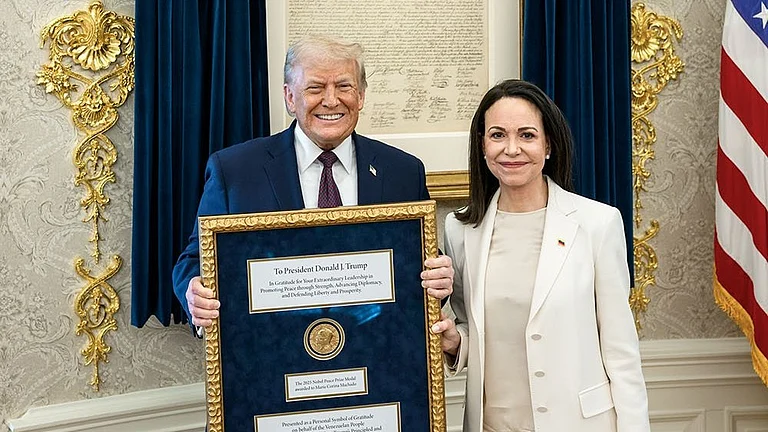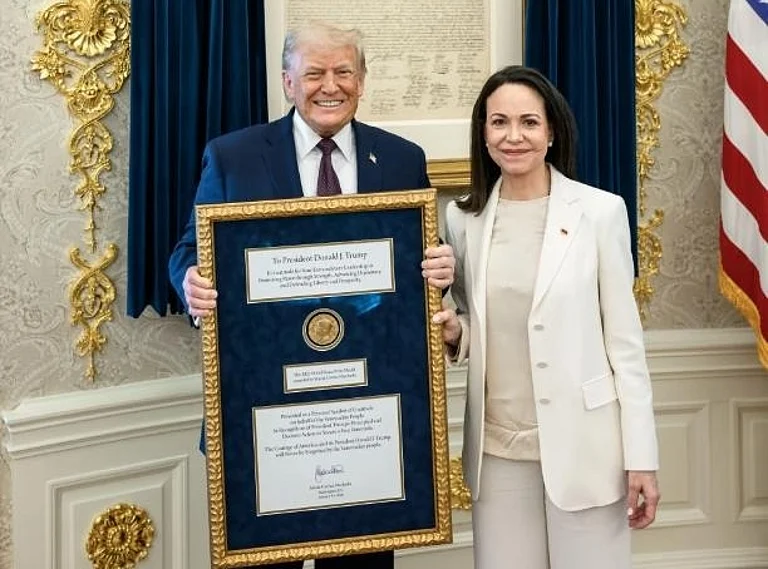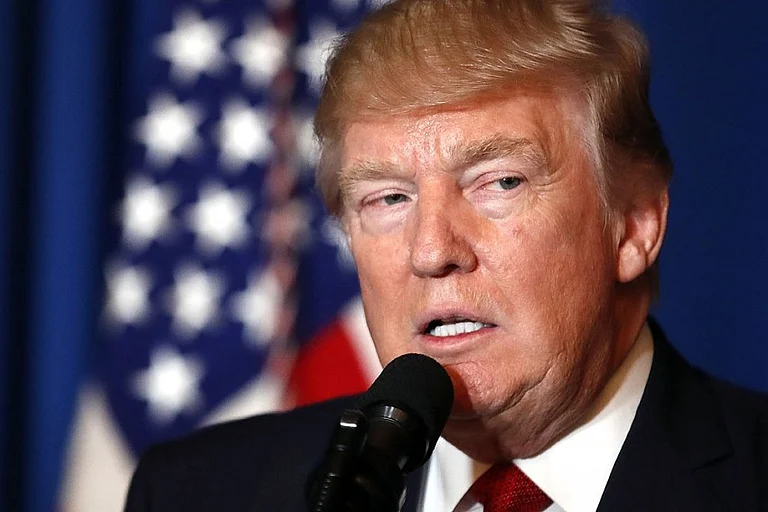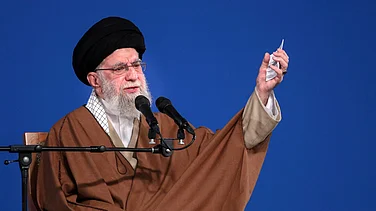
Maria Corina Machado won the Nobel Peace Prize 2025 or her tireless efforts to promote democracy and lead a peaceful transition from dictatorship.
Machado has championed electoral transparency, human rights, and judicial independence, inspiring millions through non-violent resistance despite threats, arrests, and political persecution.
Machado remained in Venezuela amid authoritarian rule and widespread poverty.
The Norwegian Nobel Committee has awarded the 2025 Nobel Peace Prize to Venezuelan opposition leader Maria Corina Machado for her “tireless work promoting democratic rights” and her “struggle for a peaceful transition from dictatorship to democracy”.
In recognition of her courage, Machado has been honoured for her unwavering commitment to peaceful resistance and democratic reform, making her a symbol of hope in a nation gripped by authoritarian rule.
Machado entered politics in 2002 as the founder and leader of the vote-monitoring group Súmate, alongside Alejandro Plaz. As the founder of Súmate, a civil society organisation promoting electoral transparency, she chose ballots over bullets more than two decades ago. Her activism has consistently championed judicial independence, human rights, and representative governance, even as the regime sought to silence dissent through intimidation, imprisonment, and censorship. She is currently the National Coordinator of the political party Vente Venezuela.
A powerful symbol of civilian courage in Latin America, Machado has long defied the repressive regime of Nicolás Maduro, enduring threats, arrests, and political persecution. Despite living under constant risk, she has remained in Venezuela, inspiring millions through her insistence on peaceful resistance and free elections.
The Nobel Committee described her as a unifying force in a once-fractured opposition, whose leadership helped mobilise volunteers across political divides. During Venezuela’s disputed 2024 election, when the regime barred her candidacy, Machado backed opposition representative Edmundo González Urrutia. She oversaw citizen-led efforts to monitor polling stations, document tallies, and expose electoral fraud, even as the government sought to suppress dissent.
Venezuela's descent into authoritarianism has plunged millions into poverty and forced nearly eight million citizens to flee. Yet Machado remained in the country, even as she was forced into hiding. She decided to stay, despite threats to her life, becoming a living testament to the power of peaceful resistance.
In its statement, the Committee said, “Maria Corina Machado has shown that the tools of democracy are also the tools of peace. She embodies the hope of a different future, one where the fundamental rights of citizens are protected and their voices are heard”.
Machado was a candidate in the 2012 Venezuelan presidential election but lost the opposition primary to Henrique Capriles. During the 2014 protests, she played a leading role in mobilising demonstrations against the government. In 2019, amid the Venezuelan presidential crisis, she announced her intention to run again if interim president Juan Guaidó succeeded in calling for elections—an effort that ultimately failed.
This year’s committee faced particular scrutiny following an intense campaign by Donald Trump, who was reportedly frustrated that four of his predecessors, including Barack Obama, had received the award. His outbursts raised concerns in Norway about possible retaliation if the 79-year-old was overlooked for what is often seen as the world’s most prestigious honour.





























